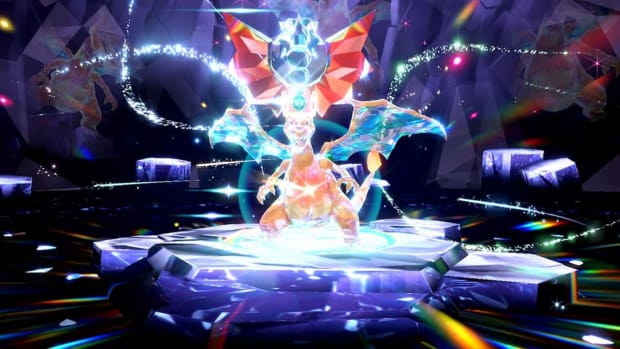
Are we better off without Xbox Achievements and PlayStation Trophies?
Achievements and Trophies have become a staple of modern gaming, to the point where systems that don’t have an achievement system built-in just might have an in-game list to tick off like grocery shopping instead. Put simply, achievements are a list of things you can, ahem, achieve in the game, and each thing you do is weighted by the value of the Gamerscore or Trophy count on Xbox and PlayStation, respectively. You might get a bronze Trophy for beating the first battle, while completing the game will bet you a Gold on PlayStation. Change that to increasing numbers and you’ve got Xbox’s take.
While achievements are, for the most part, a simple checklist to stretch out a game’s length, their implementation can either get in the way, or make it a better overall experience, depending on your tastes. Love them or loathe them, achievements are here to stay in modern gaming. It’s almost the law to have one focused on petting animals now. All I ask developers is this: please make sure they don’t ruin your game.
BioShock was the game that disillusioned me to achievements entirely. The original BioShock, like many games of the era, has a moral choice to make. Its world is full of little kids, and the little kids are full of juice that you can extract to level up, killing them in the process. Obviously, that’s not very nice. On the other hand, you can choose to save them for a smaller payout of kid juice, and you might be rewarded for your restraint.
It’s a question of immediate reward, or delayed gratification, and in the moment it can feel like a tough choice (don’t judge me, the kids aren’t real and the juice might let me shoot bees out of my hand). The problem is though, unlike say, the Mass Effect series, your choice in BioShock either doesn’t matter, or is one that shouldn’t even be given to the player. For the true ending of the game, you must save a majority of kids, called Little Sisters, and to hit this home, there’s a hefty achievement for saving them all – and no parallel for harvesting them.
We can assume that the story was written before the trend of moral choices in that generation of gaming, but even away from that, it highlights a key issue. If you want to play BioShock, there is a clear, intended path to follow. You can make moral choices along the way, but it’s obvious that the developers don’t want you to sup on kid juice. It makes the decisions you make along the way feel like an absurd trap, one that could gate you off from the intended finale at any point.
Let’s say each choice is weighted evenly, which presents its own problem. When there are achievements for multiple game endings or different decisions you can make, it’s a simple nudge to play the entire game again. Anyone who’s done this will likely know that the events rarely change, just a few dialogue options. It’s a fairly cheap way to keep people playing a game.
Games have always had this, of course. Some JRPGs have locked off secret dungeons until the second or third playthrough, the Dark Souls series has hidden rings behind New Game+ modes, and Resident Evil games have unlocked new minigames, items, and shops with repeat playthroughs. But those rewards feel like tangible unlocks for your time spent with a game, while an achievement essentially adds to a number that your friends can occasionally get irrationally jealous about (in case it wasn’t clear: any amount of jealousy is irrational here).
Then there are the extreme ends of the spectrum. Some self-proclaimed achievement hunters pride themselves on the size of their Gamerscore and the number of Platinum Trophies — awarded for getting every other Trophy in a game — in their collection. Many of these gamers will even play games purpose-built to inflate those numbers. There is a small market on services like PSN made solely up of cheap, disposable experiences that will unlock a long list of trophies for minimal effort. It’s hard not to be cynical when faced with something like that.

Cheap and short games like mayonnaise jar tapping sim My Name is Mayo are often used by self-proclaimed trophy hunters to earn a quick Platinum in less than an hour.
What just might be worse, is that these gamers will purposely avoid games with stringent achievement requirements. Getting multiplayer trophies, such as a select number of victories or gaining a certain rank, can be difficult to acquire, and these players just might miss out on their favorite experience, all because it has a robust multiplayer component, or the highest tier of achievements take a long time to get.
These players are the outliers, obviously, but it speaks to the fact that achievements are a phenomenon that some people put enormous amounts of stock in, even if they are arbitrary numbers attached to the end of your profile. It does feel as if Microsoft and Sony accidentally tapped into a part of players’ brains that get overly attached to numbers. It’s gaming as a cookie clicker.
But I believe achievements can, in fact, be cool. The best achievements tempt players into doing things they wouldn’t usually. In Resident Evil 5, it’s possible to deflect incoming arrows with your knife. Simply swing it and connect with an arrow in the air to destroy its momentum. It’s a simple technique, and one that is arguably entirely useless, but getting an achievement for this is a fun little exercise in timing and patience. Similarly, Resident Evil 6’s achievement for downing the game’s big bad, Ustanak, using melee attacks seems unthinkable when you first play, but if the achievement description tempts you into trying, you just might surprise yourself.
When an achievement tempts me into doing something I wouldn’t have even considered by myself, it feels like it’s opening your eyes to new possibilities. It might not teach you anything truly useful, but it’s lovely to feel gently coerced out of my comfort zone. When all of that comes together perfectly, I truly enjoy browsing an achievement list and seeing what other little experiments I can participate in. Otherwise, I think we’d all be better off pretending they’re not there at all.



